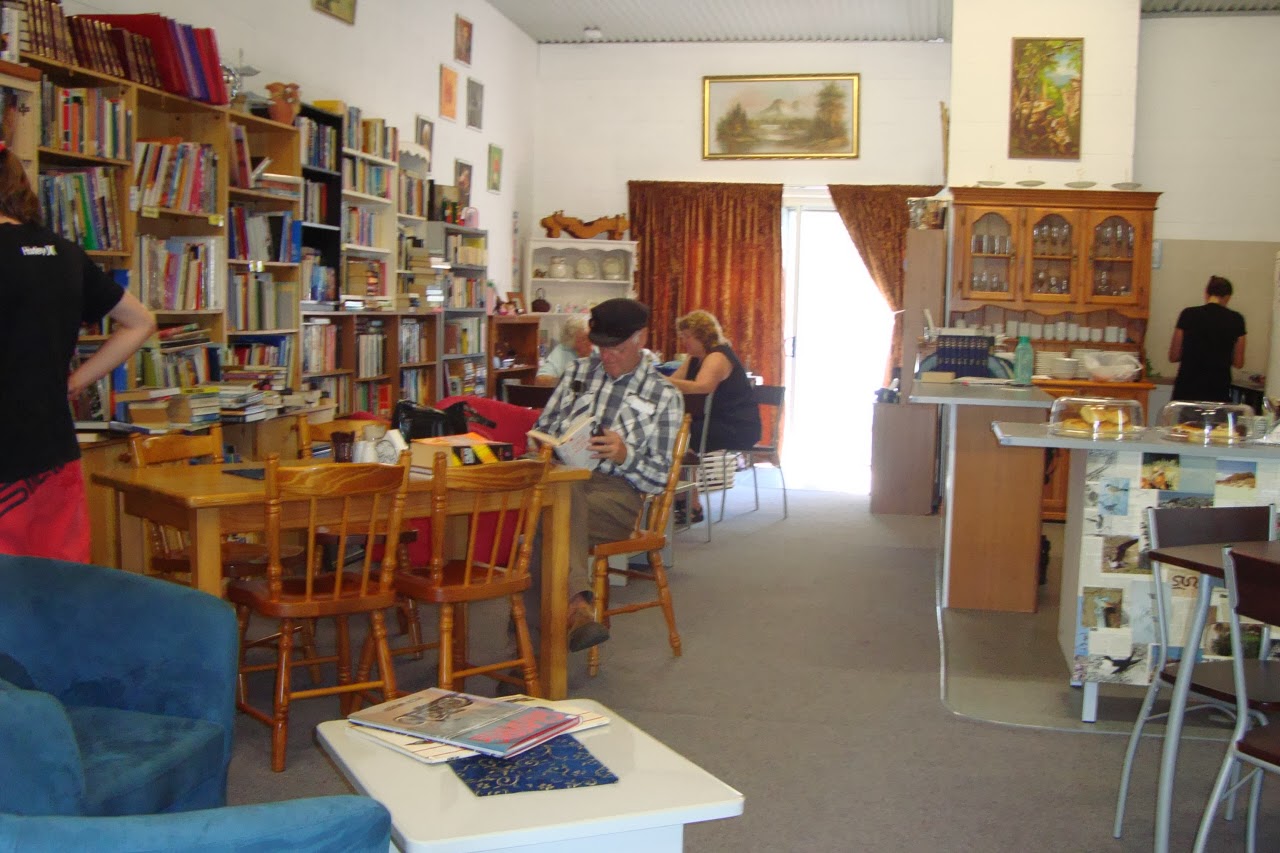Even during my restless years, I belonged to several book clubs, including Reader's Digest and TIME-LIFE, whose publications cost the usual $29.95 (plus postage & handling) which then was a week's housekeeping money (or the cost of a lavish dinner-for-two to which I never treated myself).
When it was time to relocate, I would put the books into boxes (which cost money) and the boxes into storage (which cost more money).
Then, twenty years later, when all my travelling was done, I got the boxes out of storage, only to discover that many of those books I had so carefully boxed and stored, could be bought at an op-shop for 10 cents, or perhaps 20 cents, but never more than a dollar. (And ditto for all those vinyls, those fragile black things handled with kid gloves lest they got scratched. They are on sale now, unscratched, for just ten cents!)
If I had my time over again, I would buy nothing new as I can hardly image a world without op shops. Generally staffed by kindly older ladies, they're little rays of sunshine amidst the primarily drab and boring shopping experiences of the twenty-first century. Apart from large, wildly expensive department stores like David Jones and Myers, where else can you go that sells such a wide variety of goods? If you're lucky the ladies might even offer you a cuppa and a biscuit.
Throughout history people have always worn second hand clothes and treasured pre-loved things. In most families (and in my family in particular!), younger siblings (and I was the youngest!) have long been the recipients of their older sisters' and brothers' hand-me-down clothes, while donating unwanted garments and household paraphernalia to the needy has been practiced by those who are more privileged. While once upon a time such benevolence was generally practiced informally, over the last several decades shops dedicated to selling pre-loved wares have sprung up in cities and towns, large and small, all around Australia.
I can't remember when I discovered my first op shop. I remember once seeing a funny shop with funny-looking people going in and out but it was quite some time later, when op shops had gone mainstream and into main street, that I entered a store which had that peculiar odour created by used clothing and household items within.
In days gone by, if I needed a new belt to accommodate that expanding waistline, I would have gone into a men's wear store and happily paid $20. These days, I go into an op shop and choose from a range of real leather belts with real brass buckles, and never pay more than a dollar. As for books, I have found books I never knew existed and never paid more than a dollar for them.
Once such treasures are discovered, it boosts one’s endorphin levels, thus creating euphoria which can last for hours or days, depending on the perceived value of the find (and relative purchase price). A word of warning though: repeated discoveries of this nature will lead to the addiction of op shopping!
Luckily, I am not alone when I go for my op shop fix. Just look at ilovetoopshop.blogspot.com.au or opaholic.blogspot.com.au
or opshopmama.blogspot.com.au or ayearattheopshop.blogspot.com.au or ... - come on, do your own GOOGLEing!
There are even organised op shopping tours - see www.opshoptours.com.au - and a nation-wide register of op shops.
And here is a trailer of a seven-minute short film that captures the essence of the op shop culture that Australians have come to love:
It's an endearing portrait of three spirited elderly ladies who come across an unusual donated object in an op shop, and each goes through a journey of self discovery as they try to decipher the purpose of the object. The film brings strings of surprises and abundance of humour, a familiar scenario which op shop volunteer workers and shopper alike encounter with their daily discoveries of quirky donated goods.
When the going gets tough, the tough go op shopping!








